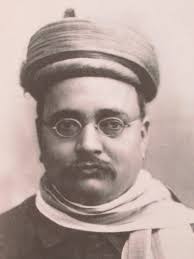Indian History
Gopal Krishna Gokhale
- 11 May 2021
- 4 min read
Why in News
The Prime Minister of India paid tribute to Gopal Krishna Gokhale on his Jayanti.
- Gopal Krishna Gokhale was a great social reformer and educationist who provided exemplary leadership to India's freedom movement.
Key Points
- Birth: 9th May, 1866 in Kotluk village in present-day Maharashtra (then part of the Bombay Presidency).
- Ideology:
- Gokhale worked towards social empowerment, expansion of education , struggle for freedom in India for three decades and rejected the use of reactionary or revolutionary ways.
- Role in Colonial Legislatures:

- Between 1899 and 1902, he was a member of the Bombay Legislative Council followed by work at the Imperial Legislative Council from 1902 till his death (1915).
- At the Imperial legislature, Gokhale played a key role in framing the Morley-Minto reforms of 1909.
- Role in INC:
- He was associated with the Moderate Group of Indian National Congress (joined in 1889).
- He became president of INC in 1905 in Banaras session.
- This was the time when bitter differences had arisen between his group of ‘Moderates’ and the ‘Extremists’ led by Lala Lajpat Rai and Bal Gangadhar Tilak among others. The two factions split at the Surat session of 1907.
- Despite the ideological difference, in 1907, he intensely campaigned for the release of Lala Lajpat Rai, who was imprisoned that year by the British at Mandalay in present-day Myanmar.
- Related Societies and Other Works:
- He established the Servants of India Society in 1905 for the expansion of Indian education.
- He was also associated with the Sarvajanik sabha journal started by Govind Ranade.
- In 1908, Gokhale founded the Ranade Institute of Economics.
- He started english weekly newspaper, The Hitavada (The people's paper).
- Mentor to Gandhi:
- As a liberal nationalist, he is regarded by Mahatma Gandhi as his political guru.
- Gandhi wrote a book in Gujarati dedicated to the leader titled ‘Dharmatma Gokhale’.
Morley-Minto Reforms 1909
- The reforms included the admission of Indians to the Secretary of State's council, to the viceroy's executive council, and to the executive councils of Bombay and Madras, and the introduction of an elected element into legislative councils with provision for separate electorates for Muslims.
- The reforms were regarded by Indian nationalists as too cautious, and the provision of separate electorates for Muslims was resented by Hindu.
- The legislative councils at the Centre and the provinces were increased in size.
- The Act increased the maximum additional membership of the Imperial Legislative Council from 16 to 60.
- The legislative councils at the Centre and the provinces were to have four categories of members as follows:
- Ex officio members: Governor-General and members of the executive council.
- Nominated official members: Government officials who were nominated by the Governor-General.
- Nominated non-official members: Nominated by the Governor-General but were not government officials.
- Elected members: Elected by different categories of Indians.
- The elected members were elected indirectly.
- Indians were given membership to the Imperial Legislative Council for the first time.
- It introduced separate electorates for the Muslims.
- Some constituencies were earmarked for Muslims and only Muslims could vote for their representatives.
- Satyendra P Sinha was appointed the first Indian member of the Viceroy’s Executive Council.






